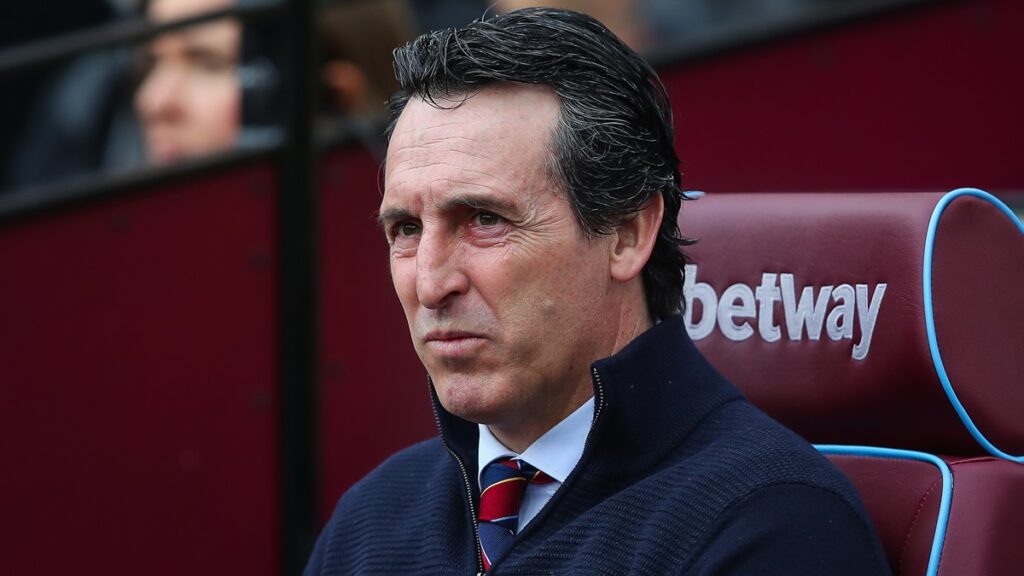Champions League
Aston Villa return to the Champions League. Will it do better than Newcastle?
For the first time in more than 40 years, the Birmingham team will play in the most prestigious club competition. To follow up the legendary 1981/82 season when the Villans won the trophy seems like a utopia, yet Unaie Emery’s team could give English football a good name in Europe.

For the first time in more than 40 years, the Birmingham team will play in the most prestigious club competition. To follow up the legendary 1981/82 season when the Villans won the trophy seems like a utopia, yet Unaie Emery’s team could give English football a good name in Europe.
- Aston Villa’s first appearance in the most prestigious club competition since 1983
- Massive strengthening at Villa Park
- An experienced manager, an unsharpened squad
Champions League à la Newcastle?
Last season’s Champions League saw Newcastle, fourth in the English league, among Europe’s top teams, get the chance to take on Europe’s giants. Specifically, Paris Saint-German, AC Milan and Borussia Dortmund.
The team from the north of England impressed with their performances, especially in the high 4-1 win against PSG, but the five points earned were only enough for fourth place, which meant the end of the European Cup. However, Eddie Howe’s charges made a good name for English football, unlike Manchester United, who were expected to perform much better and advance from the group stage. The Magpies could only surprise.
Villa, however, face a different format of millionaire competition. Four-man groups are a thing of the past, replaced by just one 36-man league table. Now each team will play eight games, each time against a different opponent. The Villa Park club will be seeded in the 4th, or at most the 3rd, performance basket, so Captain McGinn’s team will measure their strength against the biggest clubs in Europe.
A lot of reinforcements, but also a lot of losses
The demanding schedule, in which domestic competitions and the Champions League must be combined, is certainly not underestimated at Villa Park. There are eight new faces in total, with defensive midfielder Amadou Onana from Everton, left-back Ian Maatsen from Chelsea, central midfielder Ross Barkley from Luton and winger Jaden Philogene from Hull among the biggest names.
Emery’s team, however, suffered two notable losses. Douglas Luiz, one of Aston Villa’s mainstays last season, will now don the Juventus jersey. Moussa Diaby, the author of ten goals and nine assists , left for Saudi Arabia after just one season.
Both men will not be easy to replace. Onana comes in as a direct replacement for the Brazilian midfielder. But the question remains whether he can replace one of the Villans’ best players, moreover in Champions League matches. It is after Diaby’s departure that Leon Bailey could return to the line-up, having lost his position at the expense of the French winger. But a duo of newcomers, Jaden Philogene or Samuel Illing-Junior, could also break into the line-up.
The Emery factor
Villa Park may have experience of European Cups, but their last trophy dates back to the 1981/1982 season. The English side did make a few appearances in the UEFA Cup (later Europa League), but without much success.
Last season, the Villans reached the final stage of European competition, specifically the semi-finals of the Europa Conference League, where they fell short to Olympiakos Piraeus. And that was with an experienced manager Emery, who, for an inexperienced team by European standards, could have guided them through the Champions League’s regular season with dignity.
The Spanish strategist has coached 186 matches in all European competitions, 53 of them in the Champions League and 102 in the Europa League (and UEFA Cup). Four times the 52-year-old Spaniard has even enjoyed victory in the final of Europe’s second most prestigious league. By contrast, Emery’s charges are not as seasoned in Europe.
Among the players with the most starts in the Champions League are Lucas Digne, Youri Tielemans and Robin Olsen. However, none of the players are guaranteed a place in the starting line-up. The stopper duo of Diego Carlos and Pau Torres can offer some stability and experience, with 14 and 12 Champions League starts respectively.
The other players have played at most one or two seasons in various European competitions, with either their teams finishing in the basic phase or the players fulfilling substitute roles at their clubs. Thus, it will be up to Emery to prepare a more or less inexperienced squad for matches against far more experienced and well-rounded teams.
Can Emery’s Aston Villa play a worthy role in the Champions League? Can the Villans juggle a schedule of domestic competitions and the Europa League?
Source: X, Transfermarkt












